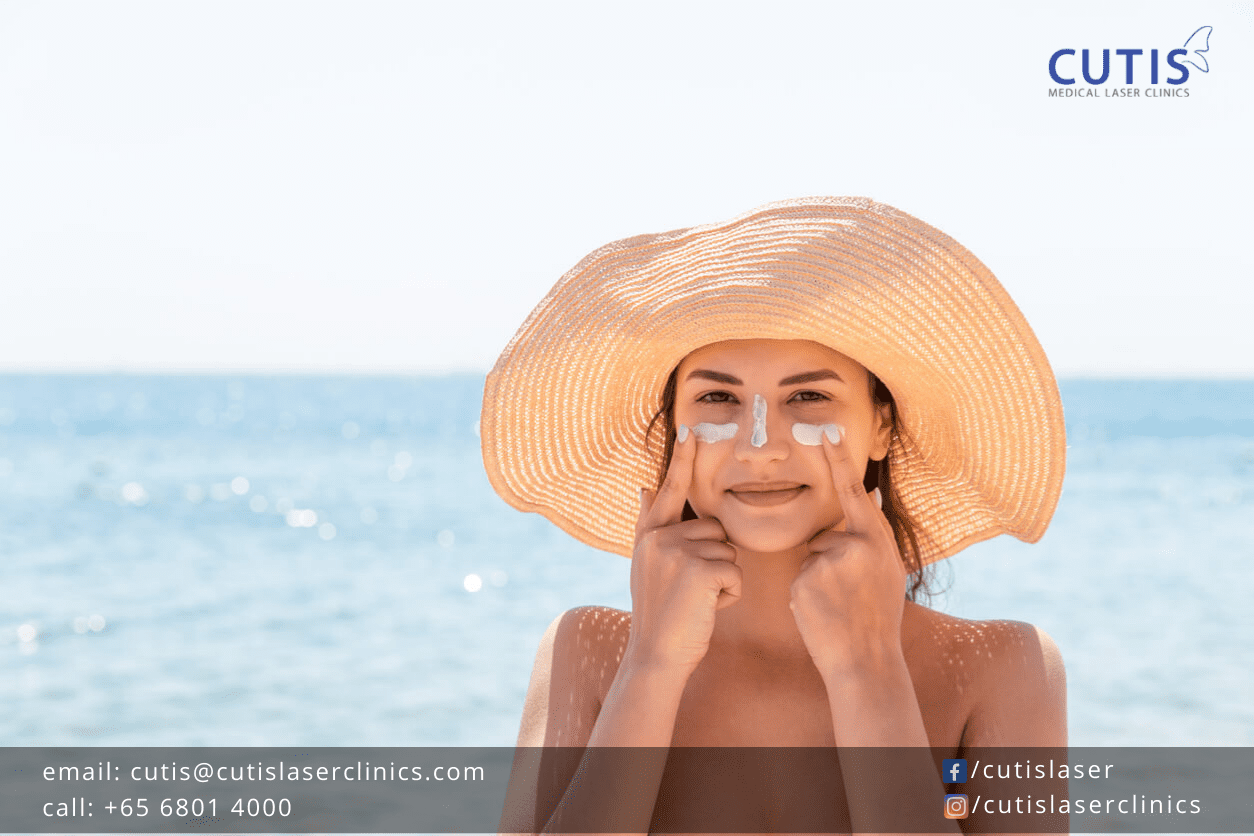When it comes to using sunscreen, some people are comfortable applying the same product for both their face and body. While this is not necessarily harmful, it is important to remember that facial skin is usually more delicate than body skin. If you have sensitive or acne-prone skin, body versions of sunscreen can be drying and irritating. It is more comfortable and makes more sense to wear a sunscreen designed for facial skin. Apart from it being more sensitive than the body, it also has delicate areas like the skin around the eyes. Facial sunscreens today, furthermore, are formulated to be lighter in texture, more easily-absorbed, and non-comedogenic (doesn’t clog pores).
It is more comfortable and makes more sense to wear a sunscreen designed for facial skin. Apart from it being more sensitive than the body, it also has delicate areas like the skin around the eyes. Facial sunscreens today, furthermore, are formulated to be lighter in texture, more easily-absorbed, and non-comedogenic (doesn’t clog pores).
Do your facial skin a favor and use a sunscreen designed for your face. Here are some features to look for when choosing or buying a face sunscreen:
Right for your skin type
If you have oily or blemish-prone skin, choose a product that won’t clog your pores. Look for sunscreens labeled non-comedogenic and oil-free to avoid adding more oil to your skin. Lighter formulations and those with matte finish are also a good choice, especially if your skin tends to look shiny or greasy throughout the day.
If you, on the other hand, have dry skin, choose a sunscreen with moisturizer or ingredients like ceramides or hyaluronic acid. For sensitive skin, a sun protection product with zinc oxide and titanium oxide can protect your skin without causing irritation, burning, and stinging.
Fragrance-free
Look for sunscreens labeled “fragrance-free”. Skin care products with added fragrances are known to cause redness and irritation, especially to those with sensitive and acne-prone skin. While scented skin care might smell nice or pleasant, it can cause side effects like dryness and aggravated breakouts.
Broad-Spectrum
Two types of UV rays (UVA and UVB) from the sun can damage the skin. UVA rays are associated with skin cancers and premature aging while UVB rays are known to cause sunburns. A broad-spectrum sunscreen offers protection from both UV rays. Many sunscreens only provide protection against UVB rays, so be sure to look for this label.
At least SPF 30 or higher
Experts recommend using a sunscreen with SPF 30 or higher. Do take note, however, that a higher SPF number doesn’t mean that it offers higher or better sun protection. SPF 15 blocks 93% of UVB rays, SPF 30 blocks 97%, SPF 50 blocks 98%, while SPF 100 blocks 99% of UVB rays. SPF between 30 and 50 is usually enough.
The sunscreen we recommend
At Cutis Medical Laser Clinics, we have Clear Defense SPF 45 with Broad-Spectrum from Dr. Sylvia Skin Care. This lightweight formula contains a blend of actives that offers protection against UV and infrared damage. Clear Defense also has zinc oxide, an active ingredient that blocks UVA and UVB radiation, while being gentle on the skin.
Benefits include:
- Fast-absorbing and leave no residue
- Prevents UVA/UVB and infrared damage to skin
- Features niacinamide for smoother and clearer complexion
- Improves the look of lines and wrinkles
- Helps increase skin firmness and elasticity
- Reduces redness, blotchiness, and hyperpigmentation
- Ideal for normal, sensitive, oily, and mature skin
Be wise about the products you use on your face. It is best to use a sunscreen formulated for facial skin and apply the product every day. Also, you shouldn’t solely rely on sunscreen to protect your skin. It is also important to seek share, wear the right clothing, and limit sun exposure.
For more medical-grade skin care product and nonsurgical aesthetic treatment recommendations, browse through our website or contact Cutis Medical Laser Clinics in Singapore to book a consultation with our aesthetic doctor.
- If you would like to be an informed patient, please contact us at +65-6801-4000 or
hello@cutislaserclinics.com. - Cutis Medical Laser Clinics, 9 Scotts Road Pacific Plaza, Scotts Medical Center #08-07, Singapore – 228210
+65-6801-4000 - hello@cutislaserclinics.com
